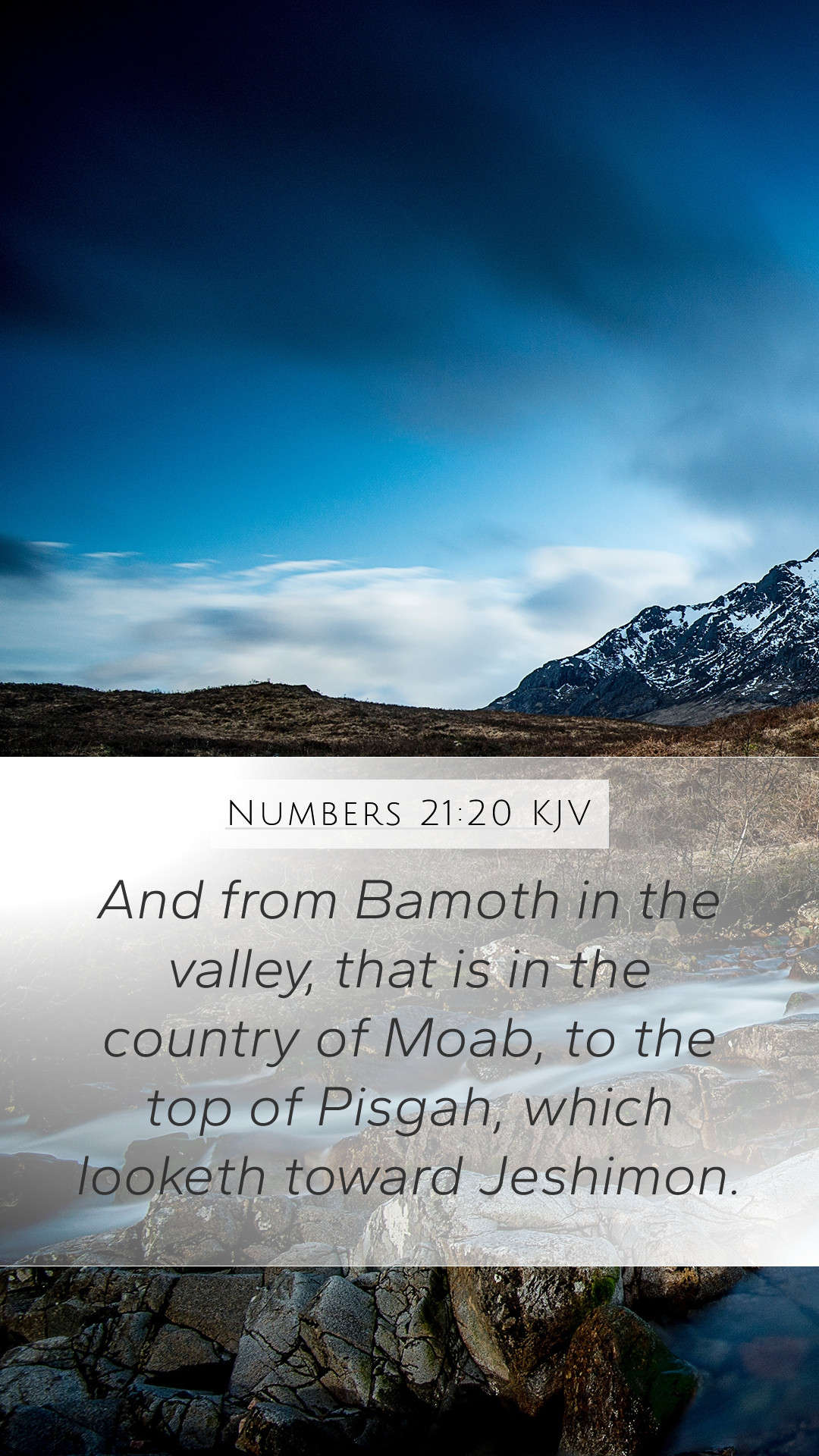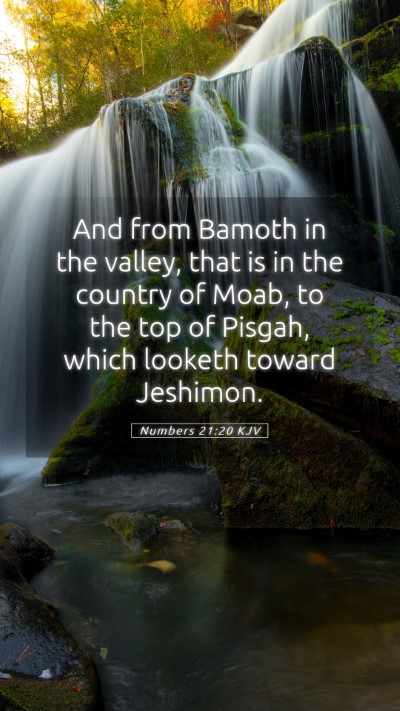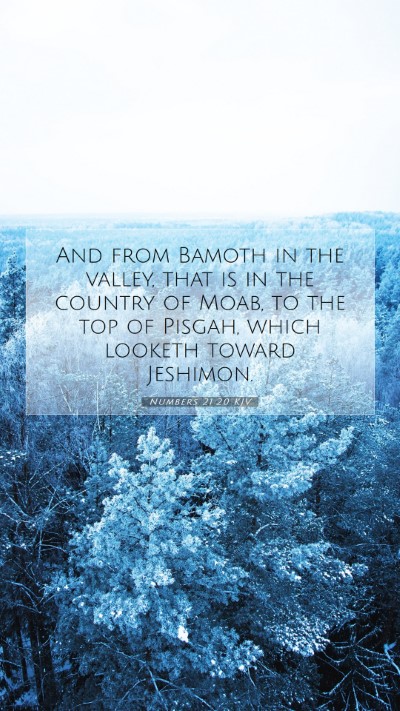Bible Verse Meaning: Numbers 21:20
This verse, Numbers 21:20, is part of a narrative that describes the Israelites’ journey through the wilderness toward the Promised Land. Understanding this scripture involves several layers of meaning and context that can provide rich insights for Bible study groups and online Bible study participants.
Verse Overview
The verse states: "And from Bamoth he went to the valley that is in the country of Moab, to the top of Pisgah, which looks toward Jeshimon." This passage highlights a significant geographical location in the journey of the Israelites, indicating both a literal and figurative viewpoint.
Commentary Insights
- Matthew Henry's Commentary: Henry emphasizes the significance of the location, noting that the mountaintop symbolizes spiritual perspective and foresight. From this vantage point, Moses would be able to see the Promised Land, even if he would not enter it himself. This reflects a theme of faith and hope in God's promises.
- Albert Barnes' Notes: Barnes draws attention to likely historical and topographical contexts, explaining that Pisgah was part of the mountains of Moab. He comments on the importance of the view from Pisgah, which offers insight into the future destiny of Israel, demonstrating God’s faithfulness to His covenant with them.
- Adam Clarke's Commentary: Clarke interprets the journey to Pisgah as a moment of reflection for Moses and the Israelites. He suggests that the view of the land represents a culmination of their wandering and a reminder of God's promises. Clarke’s analysis focuses on the emotional and spiritual lessons drawn from such pivotal moments.
Bible Verse Interpretations
In interpreting Numbers 21:20, readers can consider several themes:
- Spiritual Vision: The act of climbing to a high place symbolizes the need to gain a higher perspective on life and God's promises.
- Faithfulness of God: The journey toward the Promised Land shows God's unwavering commitment to His people, encouraging believers today to trust in His plans.
- Reflection and Anticipation: Moses' view of the land serves as a powerful reminder of hope and the anticipation of blessings yet to come.
Application of the Verse
Applying the insights from Numbers 21:20 to our daily lives involves engaging with the following reflections:
- Reflect on Divine Promises: Just as the Israelites looked forward to the Promised Land, we can look forward to God's promises in our lives and seek spiritual clarity through prayer and study.
- Seek Higher Perspectives: Consider moments when life seems challenging and look for ways to rise above current circumstances with faith.
- Encourage Community Discussion: Use this verse in Bible study groups to discuss hope, faith, and God's faithfulness in our journeys.
Cross References
Related verses provide further context and depth:
- Deuteronomy 3:27-28: God's command to Moses regarding viewing the Promised Land.
- Hebrews 11:13-16: The faith of the patriarchs longing for a better country.
- Isaiah 40:31: Those who hope in the Lord will renew their strength.
Conclusion
In summary, Numbers 21:20 embodies significant themes of spiritual clarity, divine promise, and the emotional journey of faith. Engaging with such scripture allows for profound Bible study insights, enhancing both understanding and application of God’s word in our lives.
Further Study Tools and Resources
For those interested in deepening their exploration of this verse, consider utilizing Bible study tools, guides, and courses that focus on:
- In-depth Bible verse analysis
- Understanding difficult Bible passages
- Historical context of Bible verses


